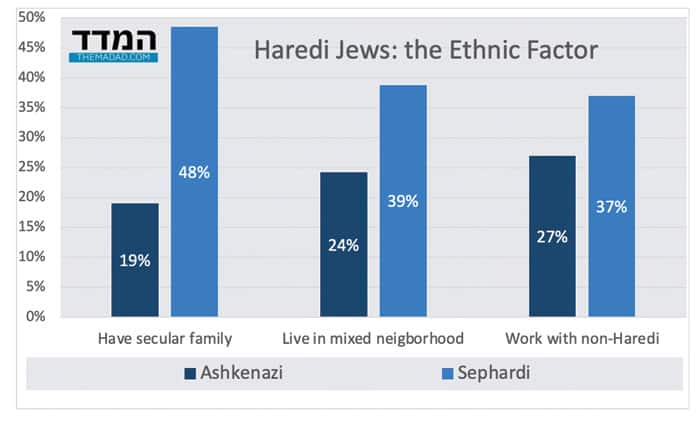
Benjamin Netanyahu is about to publish a book. “Bibi: My Story”. It will be a good book. I will surely read it (and to make it clear: I have not yet read it).
And how do I know it will be good? Because its author is a thinker and a writer. Netanyahu has already written books. They were good and interesting. Maybe even important.
It will also be a bad book. At least, it will not be the best book Netanyahu could write.
And how do I know that? I know that politicians rarely write good books. And even fewer of them do so when they are still in office or running for office. That is, when the book is not a concluding chapter of a career, but rather another stepping stone. Unless Netanyahu decided to retire and didn’t tell us (and some might suspect that deciding to write a book could mean such subconscious decision), his forthcoming book is an intermediate stop on a political path that is still ongoing. In that case – his considerations as a political leader will outweigh his considerations as a book writer. And that’s a recipe for a bad book.
Politicians, senior officials and leaders often write books. Most of them don’t have many readers. Most of them are an unnecessary burden. They only serve to prove that doing things and narrating things are not the same. Politics is a profession with high return for subterfuge and small reward for soul-searching. Writing good books is a mirror image of politics: a small return on subterfuge and a high return om soul-searching. Even for the most talented of leaders such acrobatics is not easy. Read Winston Churchill’s World War II memoirs. The writing is masterful, but the level of accuracy in describing the historical narrative is debatable. When writing these volumes Churchill still had scores to settle and political ambitions to consider. If even for him — the most talented leader, the most original thinker, the most proficient writer — it was not easy to write a book as wonderful as he could write, what can we expect from lesser leaders?
It is much more difficult for them. You want an example? Here’s one: Hillary Clinton’s autobiography is boring and bland and tedious throughout. It is also very long, because brevity is also a trait that is difficult for politicians to master. Look at the book written by former Israeli Prime Minister Ehud Olmert. Had he accepted the good advice of his editors, he would have shortened it by half, and perhaps have a half-decent book. But he did not.
Back to Clinton: she wrote the book when it was still clear that she intended to try and become president of the United States. This required her to do several things: 1. Not to say things that would offend her voters. 2. To glorify her past whether she deserves glory, or rather deserves condemnation. Clearly, Clinton has an interest in writing books (she recently published a thriller) and may have wanted to write a good book. But even if she wanted to — she couldn’t. Not because of lack of talent. She could not write a decent book because she was still a politician. It is very difficult to write a good autobiography when the professional future of the politician is still ahead of him. And it is very difficult to write an autobiography that is honest and introspective, when your whole life is training in hiding, covering up, pretending.
Exceptions? There are of course a few exceptions. Barack Obama wrote a fascinating book about his life. That was before he became president, and before he had the time to ruin his talent by being a politician. Of course, it was a calculated book, designed to help him become president, and therefore not always accurate, and sometimes vague. But Obama wrote about his life as a young man. And wrote about them in a way that fit the narrative he wanted to market to Americans. Most other autobiographical outliers are the books by leaders who wrote when their career was behind them. Harry Truman’s book about his presidency is a fascinating book. The book by General and President Ulysses S. Grant — the hero of the American Civil War — is a masterful book. Perhaps the best ever written by an American president. Grant wrote near the end of his life. His family benefited from the royalties.
There are readers who have no choice but to read the autobiographies of leaders. It is impossible for an Israeli historian, or political journalist, not to read David Ben-Gurion’s writings. But we have to admit: historians who wrote about Ben-Gurion, after reading his diaries and books, summarized his life in a more interesting way.
It will be interesting — and frustrating. Netanyahu is still too busy to write the really good book he can write.
This is the category to which Netanyahu’s book will probably also belong. Read and wonder about accuracy. Read and regret what is missing. Read and get disappointed. It will be interesting – and frustrating. Netanyahu is still too busy to write the really good book he can write.
Something I wrote in Hebrew
When the spiritual leader of the Haredi-Sephardi Shas party died earlier this week, I wrote about the difference between Ashkenazi ultra-Orthodox Jews and Sephardic ultra-Orthodox Jews:
The most striking difference is in the family circle. Those who have relatives with whom they are in contact and who have different attitudes, different types of lifestyles – will learn to respect what is different. Thus, it is of great importance that the Sephardic ultra-Orthodox know secularists closely – in their family circle – much more than the Ashkenazi ultra-Orthodox. About half of the Sephardic haredis have secular relatives – with whom they are in contact. The situation of ultra-Orthodox Ashkenazis, Lithuanians and Hasids is distinctly different. Only one-in-five has secular relatives with whom he keeps in touch. Either there is no secular family, or if there is one, and there is no contact.
A week’s numbers
Sephardi Haredis are different (see the text above).

A reader’s response:
Send me questions – I like answering questions (rosnersdomain@gmail.com). Here’s one from Elly Zohar: “Do you think the Heredi parties could decide to go with Gantz and not Netanyahu this time?” Answer: Not really. Longer answer: Haredis have constituency, and it is the most rightwing constituency of all parties.
Shmuel Rosner is senior political editor. For more analysis of Israeli and international politics, visit Rosner’s Domain at jewishjournal.com/rosnersdomain.























 More news and opinions than at a Shabbat dinner, right in your inbox.
More news and opinions than at a Shabbat dinner, right in your inbox.